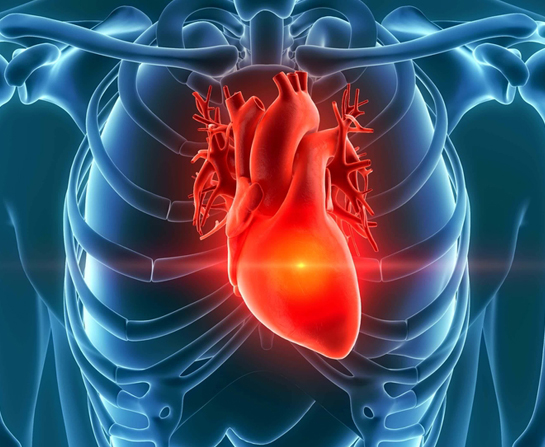For Healthy Heart & Bones
May 1, 2022 Return

Mr Greg Mapp Adjunct Associate Professor, School of Pharmacy, Griffith University, Australia
Complementary medicine today is no longer the home-made brews concocted by our grandparents based on beliefs and assumptions passed down from their own parents. These days, complementary medicine is increasingly science-based, and they are used more frequently to address common health conditions. Let us take a look at some examples.
For a healthy heart
Certain complementary medicines can support and boost heart health, when taken alongside prescribed medications. Of course, it is still very important to practise healthy eating and active lifestyle as well.
Let us examine the two common conditions that often lead to heart problems, and how complementary medicines can help in managing them.
Dyslipidemia
This is a condition that sees an abnormally high level of triglycerides and plasma cholesterol in the blood. A person with this condition may not show any symptoms, but if it is left unmanaged, there is an increased risk of coronary artery disease, stroke, and peripheral arterial disease.
Useful complementary medicines | What they do |
|---|---|
Phytosterols & stanols | Reduces the amount of cholesterol absorbed, thus lowering the amount of cholesterol present. |
Omega-3 fatty acids (DHA, EPA) | Reduces triglyceride levels significantly, hence lowering risk of heart diseases. |
Garlic | Reduces total serum cholesterol and low density lipoprotein cholesterol (“bad cholesterol”). |
Atherosclerosis
This is the blocking of arteries by plaque, leading to complications such as heart attack, stroke and even death.
Useful complementary medicines | What they do |
|---|---|
• Omega-3 fatty acids • Garlic • Ginger • Olive oil • Turmeric • Red yeast rice • Probiotics | All of these can help reduce the inflammation that can contribute to atherosclerosis. |
The osteoarthritis problem
Osteoarthritis, is caused by degeneration of the joint, leading to the destruction of its protective layer called cartilage. As a result, people with this condition often experience pain when trying to move the affected limbs. While there is no cure, osteoarthritis can be slowed down by proper medication and a healthy lifestyle.
Medications can also be given to manage the pain. Below is how complementary medicine can help.
Useful complementary medicines | What they do |
|---|---|
Omega-3 fatty acids | Anti-inflammatory; helps slow the progression of disease, possibly by decreasing the rate of cartilage loss. |
Glucosamine | May stimulate production of proteins that strengthen the cartilage. |
Chondroitin | May stop the enzymes that break down cartilage. |
Vitamin D | Clinical trials suggest that 400-1,000 IU daily (actual amount depending on blood levels) can overcome vitamin D deficiency that causes pain and difficulty in walking. |
Devil’s claw (Harpagophytum) Boswellia Curcumin | Clinical studies suggest that they may have beneficial effects on patients with osteoarthritis. |
If you like this article, do subscribe here.
